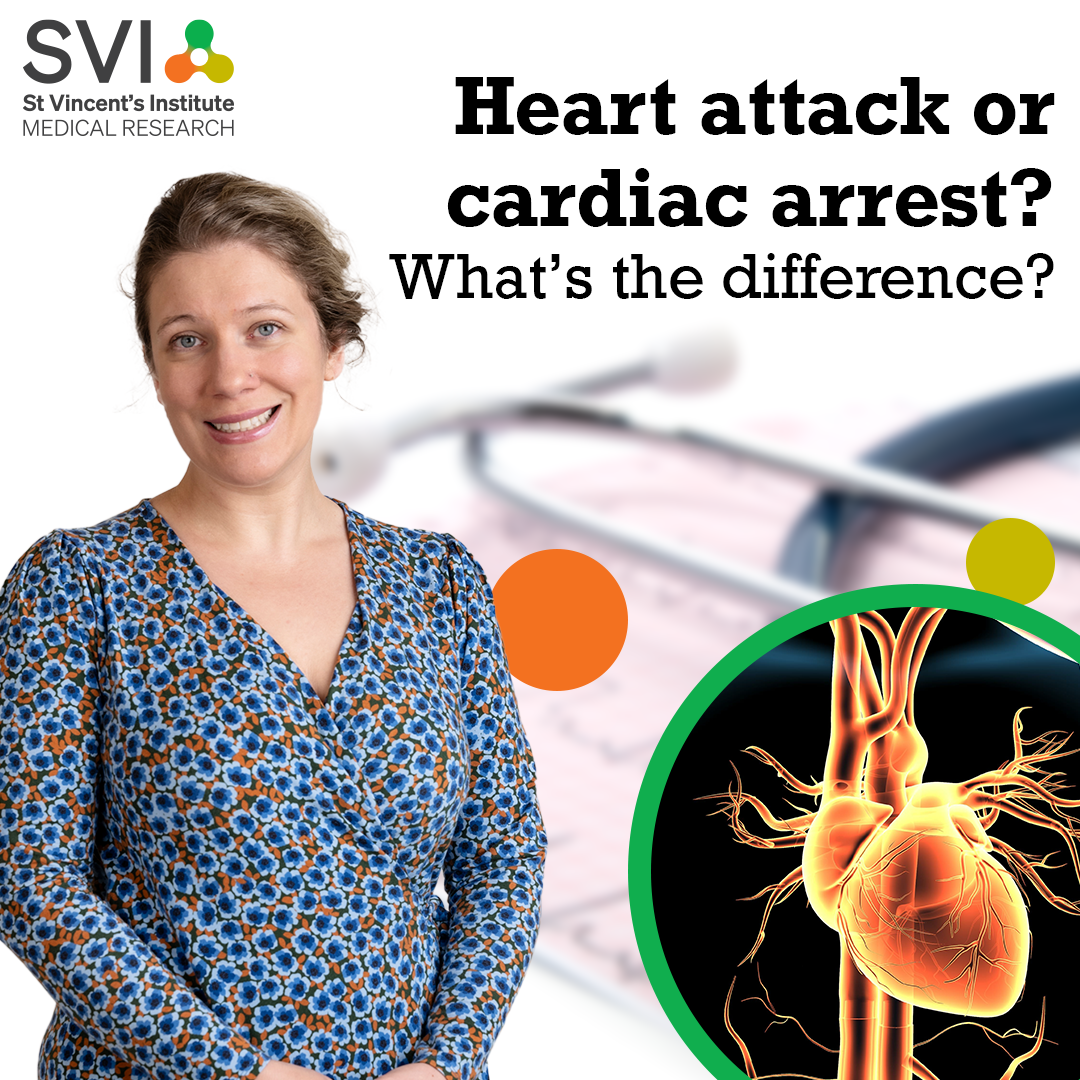Posted 21 January 2025

Many medical dramas would lead you to believe that a heart attack and cardiac arrest are two names for the same condition but, as you may have guessed, this is not the case.
Whilst both are certainly conditions that affect the heart, one pertains to a circulation issue and the other is an electrical issue.
Heart attacks – a case for the plumber (blockage in arteries)
A heart attack occurs when a blockage stops oxygen-rich blood from reaching parts of the heart causing those areas to die. The damage worsens with delayed treatment. Heart attacks can cause immediate, intense symptoms such as shortness of breath and/or chest discomfort, but it is also possible to have no symptoms at all. Unlike cardiac arrest, the heart doesn’t stop beating during a heart attack.
Cardiac arrest – a case for the electrician (heart stops beating)
Cardiac arrest is sudden and often occurs without warning. It’s caused by an electrical malfunction in the heart that leads to an irregular heartbeat or arrhythmia. This impacts the heart’s ability to circulate blood to the brain, lungs and other organs leading to a loss of consciousness and lack of pulse. Without immediate treatment, this condition quickly leads to death. Cardiac arrest is the endpoint of many conditions affecting the heart (including blockages in the heart) and requires CPR and/or defibrillation
Why the confusion?
While the conditions are distinct, they can overlap as heart attack may be complicated by a cardiac arrest. Approximately 10-20% of people having a heart attack will have a cardiac arrest as the coronary blockage sets off an abnormal rhythm. Likewise, the commonest cause of a cardiac arrest is an underlying heart attack requiring treatment.
The terms ‘heart attack’ and ‘cardiac arrest’ may therefore often be used interchangeably by people, but many people have only one of the conditions.
What to do if you think someone is having either a heart attack or a cardiac arrest?
Call Triple Zero (000) or your local emergency service
Commence CPR if it is a cardiac arrest
Both a heart attack and a cardiac arrest are medical emergencies. Call Triple Zero (000) immediately if you are in Australia.
Heart attack: The sooner a person can get to a hospital, the better the chance of survival. Do not attempt to drive if you are having a heart attack. If an ambulance is not available, ask a neighbour or bystander to drive you to hospital.
Cardiac arrest: If the person is unconscious or not breathing, call for emergency assistance then immediately begin CPR. Push hard and fast in the centre of the person’s chest. CPR can save lives.
Use an AED: If the person is unconscious and an automated external defibrillator (AED) is immediately available, follow the device instructions and voice prompts until emergency assistance arrives.
Award-winning Sudden Cardiac Arrest Research – Dr Liz Paratz
The Heart Foundation has awarded Dr Liz Paratz a Postdoctoral Fellowship and the 2024 Shirley E Freeman Innovation Award for her project ‘A world-leading comprehensive registry to drive new insights into sudden cardiac death’.
The COmprehensive Database to EXamine Sudden Death (CODEX-SD Registry) is a linkage of twenty years of data from two large data sources, the Victorian Ambulance Cardiac Arrest Registry and the National Coronial Information Services. Both these services maintain data on all cases managed for the last twenty years, but not in a digitally compatible format.
Liz’s work focuses on accelerating and furthering the understanding of sudden cardiac arrest.
She is also supported through SVI’s growing relationship with the Victor Chang Cardiac Research Institute (VCCRI).
Find out more about Dr Elizabeth Paratz